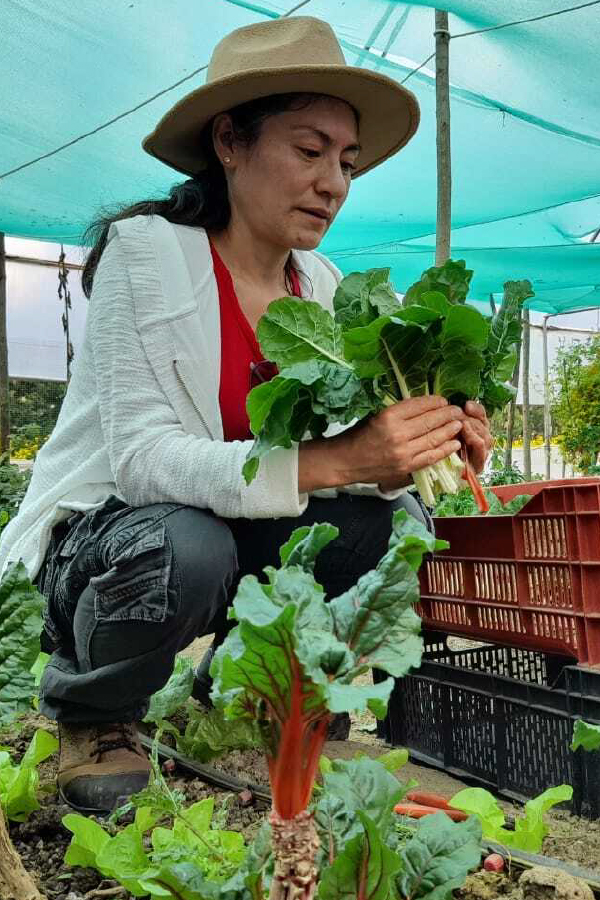
Ever since she was a child growing up in the district of Pucara, in the Junín region of central Peru, Ninfa Medina wanted to have a vegetable garden like her grandmother’s. To Ninfa, her abuela was patient and wise, and Ninfa loved that she talked with her plants. Her passion for gardening rubbed off on her granddaughter.
Where other students might bring a family pet for a school presentation, “I always brought plants to school,” Ninfa recalls. “Then, as I got older, I was able to have my own garden.”
When she finally got her own plot on her father’s farmland, she decided to keep her vegetable garden organic and use ancestral practices.
“I‘ve always liked to garden without using chemical products,” she says “It puts me in harmony with nature and the planet.”
And Pachamama, or Mother Earth, rewarded her by generously producing a great variety of aromatic herbs and nutritious vegetables.
Ninfa has stuck with her agro-ecological approach even as her father decided to temporarily shift to producing less sustainable cash crops away from the family garden in the hopes of generating more income.
To make sure ecological producers like Ninfa can continue to protect the environment and still make a good living from their land, FAO has been working with women farmers in Peru and Ecuador on building up a local network of women producers who can support each other and collectively market their products, promote agri-businesses in the region, and strengthen production chains, including with training in climate-resilient practices. Part of this work is done through farmer field schools, where women grow, harvest and learn new skills together on test plots. Ninfa, for example, learned the best ways to grow tomatoes at high altitudes and make her own organic fertilizer. In all, FAO is working to improve the livelihoods of some 200 women entrepreneurs in the region.
While she’s keen to see the women farmers in her community boost their incomes, Ninfa’s priority remains unchanged: “The Pachamama has a lot of life and we must not kill it with harmful products. We must protect the biodiversity of our gardens, because only then will we feel rich.”
The support given to Ninfa was provided through the following three projects in her community: the "Consolidation of School Feeding Programmes" project, the "Sustainable and Resilient Food Systems in the Context of COVID-19" project, and the "Rural Women" project."